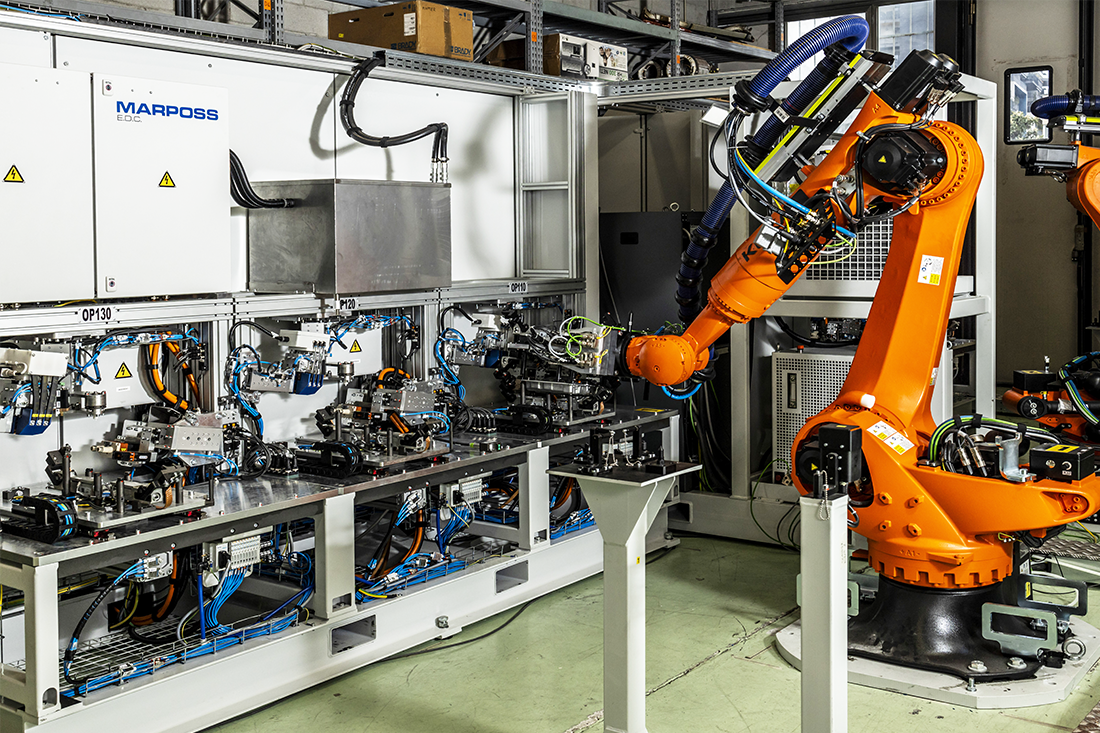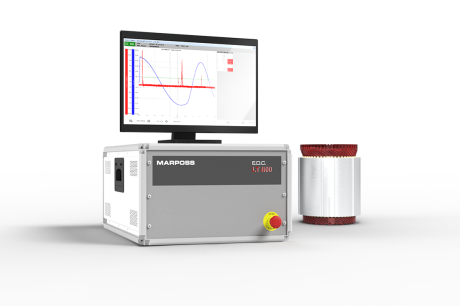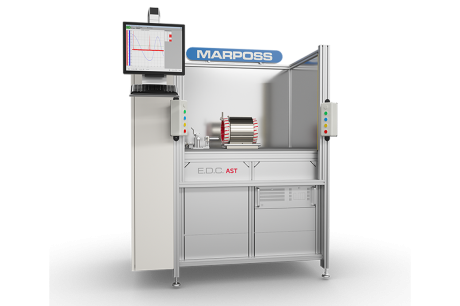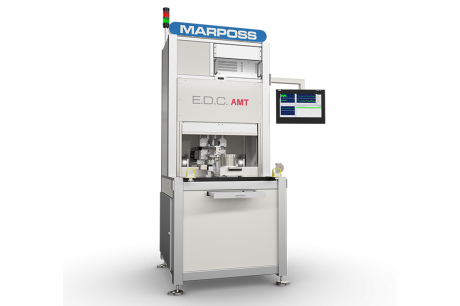INVERTER TESTING SYSTEM
In most cases, electric propulsion in vehicles is provided by one or more electric motors controlled by inverters.
The inverter is an electronic device whose task is to convert direct current (DC) from the battery into alternating current (AC) to power the electric motor, adjusting speed and torque according to driving requirements. In electric and hybrid vehicles, it is an essential component for traction control.

Production testing of an inverter is essential to verify compliance with specifications, ensure proper power management in real-world conditions, and guarantee reliability and safety.
Marposs offers complete solutions for production testing of automotive inverters, ranging from highly automated in-line test systems to simpler test benches with reduced or fully manual levels of automation.
The solutions offered cover the following types of testing:
- Testing of non-powered inverters:
- insulation test
- impedance test (to ensure that there is no current leakage through the housing, thus avoiding short circuits or electrical risks)
- Low voltage test:
- firmware update
- verification of communication via CAN BUS
- measurement of current consumption
- verification of PWM (Pulse Width Modulation) commands
- verification of ADC (Analog-to-Digital Converter) reading and analogue measurement by MCU (Microcontroller Unit)
- High voltage test:
- Thermal impedance test
- PWM signal test (analysis of the voltage waveform generated by the IGBTs on the inverter output stage)
- HVDC test with current and voltage calibration (with adjustment of gain and offset parameters)
- DC high voltage functional fest
- AC high current functional fest (ensures correct inverter behaviour under high AC operating conditions)
- HVDC active discharge test (to safely and effectively dissipate electrical energy stored in the device)
On the AIT320/W robotic test cell for automatic testing of inverters in production, the use of masters (golden samples) allows the measurement chain of the test machines to be verified and calibrated. The masters, components with known and certified characteristics, are used as a reference to ensure that each test machine produces accurate and consistent results. This verification process ensures that measurements conform to quality standards, minimising error and variation in testing.
- The AIT320/WI is a stand-alone electrical test bench for inverters, ideal for laboratory activities, quality departments and low-volume production testing.
It is particularly useful during the development phase to achieve the desired reliability objectives and during the industrialisation phase to define the acceptance thresholds to be applied in 'full production' testing. The AIT320/WI is capable of fully qualifying the drive to be tested, making it possible to configure the production test by simulating the application context of the drive connected to the motor.
- The AIT320/W family of systems can include fully automated robotic test islands to ensure a highly efficient inverter test process that is integrated into the production line.
Great flexibility and a high level of customisation allow the inverter to be qualified according to specific customer requirements. It is also possible to configure the desired tests and to define the acceptance thresholds based on the activities carried out with the AIT320/WI during the development and industrialisation phases, thus guaranteeing the consistency of the inverter qualification from the initial development phases up to "full production" testing.
The combined use of the AIT320/W for testing inverters and the AMT320/W for testing electric motors optimises the effectiveness of the test, as each component is tested under conditions that replicate the actual conditions of the application.


